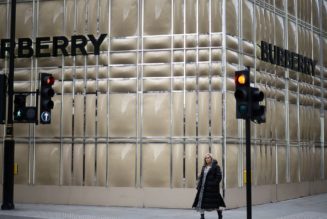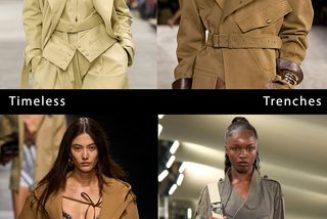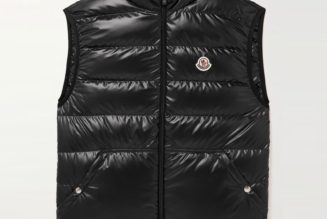
Changing times: structural shake ups at luxury brands
Luxury conglomerate, Kering, have recently announced plans to create an in-house beauty division to develop cosmetics and perfumes for some of its fashion brands. This is a strategic move to build a ‘new area of expertise’ for the group, which is hoped will widen their customer appeal. Rafaella Cornaggia has joined from Estée Lauder to lead the new division.
However, it will only develop product lines for some of the group’s brands, as others – including Gucci – currently have separate licences with other beauty companies. With Kering Beauté, the company will be entering a highly competitive market, but the outlook remains positive about the venture in light of competitors’ successful forays into the beauty market and Kering’s strong brand base.
Meanwhile at Kering’s biggest brand, Gucci, Italian designer Sabato de Sarno has been announced as the new creative director. This is considered a key appointment for investors, in an attempt to reverse a period of underperformance. Revenues at Gucci, on whom Kering are heavily dependent, have increased more slowly than larger rivals such as Louis Vuitton. Kering’s share price has also fallen by almost 15% in the past year – compared to rises of 31% for Hermès and 15% for LVMH.
The changes at Kering follow closely after those announced at LVMH, which saw Delphine Arnault (daughter of Chairman and CEO Bernard Arnault) appointed to run Dior – see our round up from last month. Dior’s current head, Pietro Beccari, is moving on to the chief executive role at Louis Vuitton, which has also seen American singer-songwriter Pharrell Williams recently appointed as the brand’s new men’s creative director, following the death of Virgil Abloh. Pharrell is no stranger to the fashion scene, having founded his own clothing collection and partnering with many big-name brands, including Louis Vuitton and Chanel. His first collection will be revealed at Paris Fashion Week in June.
Prada also recently announced Andrea Guerra as its new chief executive officer, replacing current CEO Patrizio Bertelli. The appointment is considered to be a move to ease the succession path of the founding family.
Another recent change in the luxury fashion world was the death of well-known fashion designer, Paco Rabanne. Rabanne first entered the fashion scene in the 1960s and had a big influence on the industry with his radical and bold designs. Although he retired in 1999, his label was revived by Puig, and the brand remains a well-known household name today.
Tesco makes note-worthy acquisition of Paperchase
The UK’s high street continues to face challenges as two high-profile retailers fell into administration within the first two months of the year.
Paperchase, a high-street stationery retailer, announced that it was looking for a buyer in mid-January to avoid collapse. After receiving ‘no viable offers’ for the company as a going concern, Paperchase announced that it would be going into administration. Within hours, Tesco had purchased Paperchase’s brand and related intellectual property for an undisclosed sum in a pre-pack administration. Tesco commented that the acquisition had come at a time when it was working on expanding the brand offering it provided within its stores. Therefore, notably, the acquisition does not include Paperchase’s 106 physical stores.
The retailer does not anticipate that a further buyer will be found for the remaining assets, including the stores, which will create up to 900 redundancies. This comes after a difficult few years for Paperchase which launched a CVA in 2019 and was then purchased in a pre-pack administration by Permira Debt Managers in 2021. At that stage, 90 of the retailer’s 127 physical stores were retained. However, high-street footfall remains low following the pandemic and retailers are now facing huge increases in energy and labour costs.
Similarly, Scottish clothing retailer, M&Co, fell into administration at the end of last year. Although a buyer was found, likewise, the acquisition will not include M&Co’s 170 stores. AK Retail Holdings, owner of a number of clothing brands, has acquired M&Co’s brand and intellectual property for an undisclosed amount. However, the retailer’s physical stores were not included in this deal, and therefore are in the process of closing by Easter, causing up to 1,910 job losses.
Paperchase and M&Co are the latest in a number of well-known high street retailers to leave the high street in recent years, including Topshop and Debenhams, amongst others.
China Covid-19 disruption continues to impact retail
While all coronavirus restrictions were lifted in the UK early last year, it was only in December that China ditched its strict zero-Covid policy, and inevitably the effects have been felt across the retail industry worldwide. This month, Toronto-based outerwear brand Canada Goose announced a 10.8% drop in net income to £82.7 million in the three months to 1 January and lowered its full year forecasts as Covid disruptions diminished China sales.
Dani Reiss, chairman and CEO of Canada Goose, commented: “For most of the third quarter which includes December, our busiest month of the year, our performance was impacted by worse than expected Covid related disruptions in mainland China. This, combined with recent slowing momentum in North America set against a tough macro-economic backdrop, has led us to revise annual guidance.”
Similarly, Californian corporate-headquartered footwear brand Skechers recently reported that during the same quarter it suffered a 23% decrease in China sales due to the pandemic, including the temporary closure of more than 1,000 Sketcher stores in November 2022, which offset total growth.
David Weinberg, chief operating officer of Skechers, was therefore not alone when he commented that “with the recent elimination of the zero-Covid policy, we believe that our business in China will improve throughout 2023” – this is particularly so in the footwear industry as a whole, which relies on China for manufacturing and a substantial percentage of sales.
In reality however, China’s abrupt reopening has been stricken with further issues, including a subsequent increase in Covid infections causing staff shortages. As a whole, China’s pace of economic recovery appears slow, with retail in particular not anticipated to reach pre-pandemic levels of growth for several years to come.
Meanwhile, Chinese online fashion group Shein – who recently superseded Zara as the most Googled clothing retailer in the world – has set a £50 billion revenue target for 2025 as it looks to convince investors that it’s on track for a stellar IPO in the US later this year. The listing would serve as one of the largest ever listings of Chinese companies in the US and is perhaps a marker of a more general trend of China opening up again to foreign investment.









